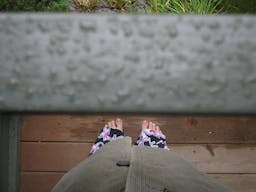How often we are subjects.
Jan 21, 2015
Story
I didn't realize it until I was reading Judy Grahn's poem, A Woman Is Talking to Death. I found the most wonderful anthology of lesbian literature from the seventeenth century until the present and was delighted when I scanned the table of contents and found so many gems: Virginia Woolf, Anais Nin, Jeanette Winterson, Muriel Rukeyser, Audre Lorde, Christina Rosetti, Rita Mae Brown...oh, Adrienne Rich, of course!
A few nights ago I read Grahn's poem to two of my friends. It reminded me of a conversation I had a week earlier in which I seemed to be the subject. I felt like I was one of Alfred Kinsey's subjects during the composition of his volume on female sexuality. It reminded me of so many other conversations I have had about being a lesbian.
Because of my own experience, it can be a tender conversation. People always want to focus on sex, I don't think anyone has ever asked me, \"Have you ever been in love with a woman?\" instead of, \"Have you had sex with a woman?\" It has been said I am a hopeless romantic in an \"everything happens for a reason\" sense, but I say in love because those words can encompass the loving relationship, rather than just delving into sex.
As this woman asked me my sexual history with women, I found myself wondering how many people may still have the same perspective? Does this shape the state I live in? The country? Why do so many of these women questioning me have their own stories about that one time they decided to sleep with another girl because their boyfriends would be aroused, but the thought of making love to a woman individually was unphathomable?
There are times my feet want to carry me away from a conversation that has the potential to open the evening to psychological theories, nature vs. nurture scopes, and a deep sigh that may follow my heart cracking over certain phrases. I have become more open though. Interviewing Kyrsten Sinema encouraged me to have more of these conversations and I realize now how important it is to have them.
I don't identify myself based off of my sexuality. I don't have \"I am a lesbian\" t-shirts and rainbow lights do not decorate my house. I've returned to Sappho time and time again within the past year after so many conversations where I was asked to explain my affection toward women but told it was something entirely different.
And that is the story of my state, of my country. How does it feel to be a lesbian in a progressive country that still uses stereotypes to portray us? How does it feel to have the same conversation which reduces a lesbian's value to her ability to fulfill orgiastic fantasies, instead of seeing the Sapphist? Why can I listen to tales of heterosexual love, but when I share the same stories people are asking because they want to know what happened to me, as in, what made me this way? How does it feel to watch countless movies, listen to music, and be bombarded by advertisements that are heterocentric? Why does it seem like my job to make people feel ok about who I am even though I'm already ok with who I am?
Why did I accidentally spill ginger ale on the keyboard and why does the rrrrrrrrrrrrrrrrrrrrrrrrrrrrrrrrr keep sticking?!
To be continued after a keyboard cleaning...




